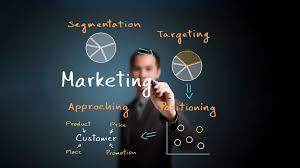Introduction: Marketing has always been an essential aspect of business success, but with the rapid advancement of technology, the way brands connect with consumers is changing. From personalized experiences powered by artificial intelligence (AI) to the rise of social media influencers, marketing is evolving faster than ever. In this article, we’ll explore how technology is shaping the future of marketing and how businesses can adapt to stay ahead of the curve.
1. Personalization: The Power of Data and AI in Marketing
Personalization has become a cornerstone of modern marketing. Thanks to the vast amounts of consumer data available, businesses can create tailored marketing experiences that resonate with individual customers on a deeper level. This level of personalization is made possible through AI and machine learning, which can analyze customer behavior and preferences to offer targeted content and recommendations.
- Customer Segmentation: AI helps marketers identify distinct customer segments and create tailored campaigns based on specific demographics, behaviors, and interests.
- Dynamic Content Creation: With AI tools, marketers can create dynamic content that adapts in real-time to user interactions, improving engagement and conversions.
- Impact: Personalization enhances the customer experience, boosts customer loyalty, and increases conversion rates, making it an indispensable part of modern marketing strategies.
2. Influencer Marketing: Leveraging Social Media Personalities for Brand Growth
Influencer marketing has exploded in popularity, especially with the rise of platforms like Instagram, YouTube, and TikTok. Consumers are increasingly turning to influencers for product recommendations, making influencers an invaluable marketing asset for brands looking to reach their target audience in a more authentic way.
- Micro-Influencers: Rather than relying on celebrities, brands are turning to micro-influencers—individuals with smaller but highly engaged followings. These influencers often have more direct connections with their audience, making their endorsements more impactful.
- Paid Partnerships: Many brands are investing in long-term partnerships with influencers, who promote products across multiple posts, stories, and videos, driving brand awareness and customer trust.
- Impact: Influencer marketing helps brands build credibility and trust with consumers, leveraging authentic voices to promote products and services.
3. Social Media Advertising: Reaching the Right Audience at the Right Time
Social media advertising has become one of the most effective ways for businesses to reach their target audience. With billions of active users across platforms like Facebook, Instagram, and Twitter, social media offers businesses a vast audience. What makes it even more powerful is the ability to target specific demographics, interests, behaviors, and locations through advanced ad targeting options.
- Advanced Targeting: Platforms like Facebook and Instagram allow businesses to create hyper-targeted ads based on detailed user data. This means that ads are shown to the people most likely to convert, improving ROI.
- Retargeting: Retargeting ads remind users who have previously interacted with your brand to complete their purchase or revisit your website, increasing conversion rates and sales.
- Impact: Social media advertising allows businesses to reach a wide, yet highly targeted, audience, increasing brand awareness and driving conversions in a cost-effective way.
4. Content Marketing: The Importance of Valuable and Engaging Content
Content marketing is at the heart of most modern marketing strategies. Brands are increasingly focused on creating valuable, relevant, and engaging content that educates, entertains, or solves problems for their target audience. With the rise of blogs, podcasts, videos, and interactive content, businesses are using content to build stronger relationships with consumers and establish themselves as industry leaders.
- Video Marketing: Video is one of the most engaging forms of content. Whether through explainer videos, tutorials, or behind-the-scenes footage, videos capture attention and convey information more effectively than text alone.
- SEO-Optimized Content: Creating content that ranks well on search engines is critical for driving organic traffic. Marketers use SEO techniques to ensure their content is discoverable by users searching for relevant keywords.
- Impact: Content marketing helps build trust, establish thought leadership, and drive long-term customer loyalty by providing valuable content that meets the needs of the audience.
5. Voice Search and Smart Devices: Adapting to the Future of Search
With the growing popularity of voice-activated assistants like Siri, Alexa, and Google Assistant, voice search is becoming an increasingly important part of digital marketing. Consumers are turning to voice search for convenience, and businesses need to adapt their SEO strategies to ensure they are visible in voice search results.
- Conversational Search: Voice search is more conversational, so marketers must focus on long-tail keywords and natural language phrases that people use when speaking, rather than just typed queries.
- Optimizing for Smart Devices: As smart speakers and devices become more common, businesses should optimize their websites and content for these platforms, ensuring they appear in voice search results.
- Impact: Voice search is changing the way consumers interact with brands, and businesses that optimize for this technology will have an edge in the competitive digital landscape.
Conclusion:
As technology continues to evolve, so does the world of marketing. From AI-driven personalization to the rise of influencer marketing and the importance of social media advertising, businesses must stay ahead of the trends to remain competitive. By embracing these technological innovations, marketers can create more meaningful connections with consumers, deliver personalized experiences, and drive measurable results. The future of marketing is bright, and businesses that adapt will thrive.

